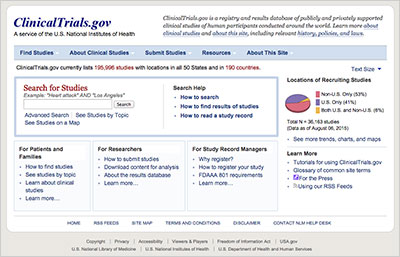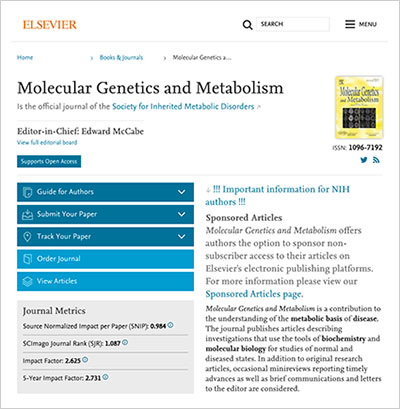Lysosomal Disease Website Resource
Please Note: by clicking on any of the links below, you will be leaving the WORLDSymposium website.

Rare Diseases Clinical Research Network
The Rare Diseases Clinical Research Network (RDCRN) was created to facilitate collaboration among experts in many different types of rare diseases. Their goal is to contribute to the research and treatment of rare diseases by working together to identify biomarkers for disease risk, disease severity and activity, and clinical outcome, while also encouraging development of new approaches to diagnosis, prevention, and treatment.

Office of Rare Diseases Research (ORDR)
The Office of Rare Diseases Research (ORDR) was established in 1993 within the Office of the Director of the National Institutes of Health (NIH), the Federal focal point for biomedical research. ORDR coordinates and supports rare diseases research, responds to research opportunities for rare diseases, and provides information on rare diseases.
The goals of ORDR are to identify, stimulate, coordinate and support research to respond to the needs of patients who have any one of the approximately 7,000 rare diseases known today.

ClinicalTrials.Gov
ClinicalTrials.gov is a registry and results database of publicly and privately supported clinical studies of human participants conducted around the world. ClinicalTrials.gov provides patients, their family members, health care professionals, researchers, and the public with easy access to information on publicly and privately supported clinical studies on a wide range of diseases and conditions. The website is maintained by the National Library of Medicine (NLM) at the National Institutes of Health (NIH).

Molecular Genetics and Metabolism
Molecular Genetics and Metabolism is a contribution to the understanding of the metabolic basis of disease. The journal publishes articles describing investigations that use the tools of biochemistry and molecular biology for studies of normal and diseased states. In addition to original research articles, occasional mini-reviews reporting timely advances as well as brief communications and letters to the editor are considered.

Lysosomal Disease Network (LDN)
Although individually rare “orphan” conditions, the lysosomal diseases collectively affect 1 in 6,000 individuals and are responsible for a significant disability and disease burden. The rarity of each lysosomal disease means that no single medical research center has an opportunity to see the entire spectrum, or to acquire sufficient numbers to adequately test new therapies.
The combined and integrated efforts of the Lysosomal Disease Network will focus limited resources toward creating a network of centers with expertise in one or more of these diseases in order to solve major challenges in diagnosis, disease management, and therapy.
